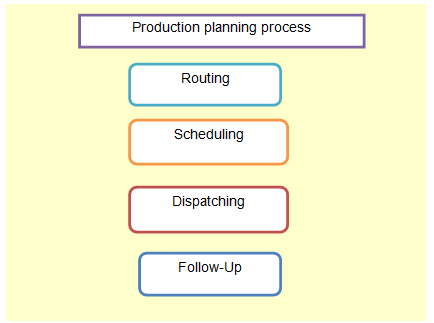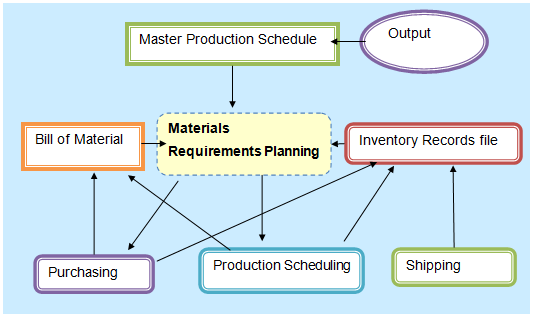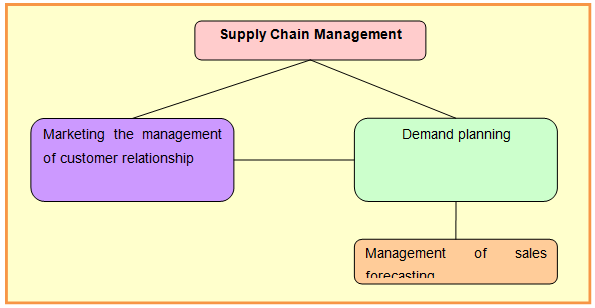Bonanza Offer FLAT 20% off & $20 sign up bonus Order Now
Nestle is one of the largest food companies in the world. The product of Nestle mainly includes the cereals, baby food, coffee, tea as well as ice cream and pet foods. The company was formed in the year 1905 by the merger of the Anglo-Swiss Milk Company. The company grew considerably during the World War 1st. One of the biggest competitor of the company is the Anglo-Swiss Condensed Milk Company that is already a leading manufacturer in Europe. As a result, in order to compete with this company, Nestle launched a condensed milk product of its own (Phillips, 2014).
The report mainly provides an overview about the supply chain management about the company Nestle. The report explain the key flows in supply chain where in the effectiveness of the information flow, product flow, return flow and cash flow of Nestle is explained. The effectiveness of the make process in the company has also been explained in the report (Christopher, 2016).
The product flow is something that starts from the raw materials to the product to the consumer. The product flow is very effective in the case of Nestle. The reason is that Nestle ensures the highest level of quality and safety before the products reaches the customers. The ensuring of the quality and the safety takes place millions times a day. The company ensures the highest possible standards along the supply chain that starts from the raw materials via packaging, distribution to the consumer. The products of Nestle are checked on the product line and as a result, the customers feel safe with the product, which increases the demand. In order to meet the strict standards, the local, and the international regulation, the products are checked on the line of production (Stadtler, 2015).
The money flow indicates the flow of funds from the customers to the manufacturers and from the manufacturer to the supplier. The company Nestle mainly faces three important organization related challenges that includes the maximization of profits, conserving cash flow as well as the creation of the shareholder value. The cash flows from the consumers to the manufacturer as the products are mostly sold in the retail shops (Miura et al., 2012).
The information flow involves the sharing of the information from the customers as well as the suppliers. The Nestle nutrition council plays an important part in this case as they provide the company with the appropriate information in order to develop the nutritional needs. The council is mainly comprised of ten global well-known nutritional scientists. The information is also provided to educate the customers about the ingredients in the products. This information will help the customers to avoid becoming overweight or obese (Prajogo & Olhager, 2012).
The return flow is quite similar to the cash flow where the money returns to the company in the form of payment. In other words, the money that is gained by the company by selling its produce is known as the return flow.
The supply chain encompasses the company and the flow of the goods and services within the company, which starts from the use of the raw materials until the customers. In the case of Nestle, the supply chain management plays an important part in Nestle. It will help to meet the satisfaction of the customers and leads to the success of the company. The information flow is the most effective theories of the supply chain management as with the help of the of the information flow the consumers will become more aware about the product. More improvement needs to be applied to enhance the information flow so that the consumers are more educated about the product.Thus, the supply chain theories will be able to bring the improvement in the company, as it will help to touch the major issues in the company. The supply chain will help to lead to the international expansion of the company and it will lead to sourcing. (Sürie & Reuter, 2015).
In order to ensure an effective and well-organized supply and logistics management, the company needs to incorporate the make process. The making process mainly refers to the activities that are executed by the companies for the scheduling and planning the production efficiently. The method by which a Nestle deals with the monthly orders and forecast the future sales are mainly with the help of the make process.
Production planning is very effective in an organization like Nestle in order to execute an economical operation in the manufacturing unit. The production planning will help to provide a better customer service as Nestle will be able to go through a proper scheduling and accelerating of work. The production planning will help the company to deliver the best quality product in time. This will, in turn, help to win the confidence of the customers (Bozarth & Handfield, 2016).
In Nestle, the first step that is involved in the production planning process is routing. With the help of this process, Nestle decides the path of work and the succession of operation. The company with the help of this process fixes the quality and the amount of the goods in advance. The company also determines the number of workers, materials that is to be used in order to produce the products. The routing process mainly depends on the nature of production (Hax, 2013).
A sound production planning process will help to maintain a systemized operation in Nestle. The production planning had helped to products to remain stable in Nestle. The objectives of the production planning in the case of Nestle are to minimize the wastage of milk and to achieve the predetermined level of production output. The production planning also helps the company to makes the efficient use of imported materials (Hoynowski & Hirschberg, 2014).

Figure: The production process
(Source: Created by the Author)
The individuals mainly affect the routing process and as a result, this process tries to meet the expectation of the consumers. The routing process helps Nestle to determine the best and the cheapest chain of operation which is very effective for the company.
The scheduling process is the second step that is involved in the production planning process. The effectiveness of this process is that with the help of this process, Nestle arranges the diverse process of manufacturing in order of main concern. The time element is the most important factor in the scheduling process. The operation schedule and the daily schedule are the two most important factors that are related to the scheduling process. With the help of this process, the company will be able to complete the job methodically and also in time (Heizer et al., 2016).

Figure: The Materials Requirements Planning
(Source: Created by the Author)
The material requirement planning process mainly ensures that the materials are available in order to produce the goods. It also ensures that the finished goods reach the consumers. The material requirement planning processes also plan the manufacturing procedure and the delivery calendar. The supply channel mainly deals with the three particular structures. The process helps the company to manage the manufacturing procedure (Kilger et al., 2015).
The supply chain theories will lead to improvement with the help of the production planning. This will help Nestle to keep looking for a centre of production that will involve lower cost of production as well as the raw materials that are reasonably priced. This will, in turn, help the company to compete with its competitors in the international market as well as in the networked economy. The company involves various activities that include the strategic management such as the sourcing of the raw materials from diverse places and then the completed goods are transferred to the diverse network. The diverse network includes the retailers, the distributors as well as the end-users (Barney, 2012).
It is recommended to make use of the production planning and the control process as it utilizes the allocation of the resources, materials and the production capacity in order to serve the customers. The production planning needs to be combined with the production control methods. The production planning is also effective as it includes the enterprise resource planning. The enterprise resource planning will help Nestle to manage and interpret the data from the business activities. The business activities will include the manufacturing and the delivery process as well as the shipping and the payment process.
The supply chain management plays an important role when it comes to the ordering supplies in order meet the demand of the customers. The supply chain management is the procedure by which a company ensures to meet the demand given the supply. The forecasting generally refers to the moving of averages and the exponential smoothing, the optimization and the simulation technique (Babai et al., 2016).

Figure: The Supply Chain Management
(Source: Created by the Author)
The simplest form of the exponential smoothing is shown in the following formula:
S0 = x0
St = ?xt + (1 – ?) St – 1, t > 0. Here ? is the factor of smoothing. The exponential smoothing is commonly applied in order to smooth the data. The exponential smoothing was mainly proposed in the year 1950. It has been successful to motivate some of the most popular forecasting methods (Yager, 2013).
On the other hand, the simulation techniques are used to solve the problems in the company that are tremendously difficult. The reason for this is that the technique involves a lot of variables. The operations of the real-world process are mainly carried out by the simulation technique.
One of the most important simulation techniques in the case of Nestle is creation of the chocolates such as Kit Kat. The candy production in Nestle mainly takes place with the simulation technique. The engineer at the Product Technology Centre in Nestle mainly makes use of the simulation technique to manufacture the Kit Kat bar (Stevens et al., 2012).
A special kind of talent with incorporates background that will be able to combine the international experience with the creative problem solving and logical skills are required for the forecasting of the supply chain management. In case, if Nestle faces any ambiguity, in that case the forecasting methodologies will able to predict the demand and supply for the future.
It is also recommended that it is important to maintain a good vendor relationship by making the use of the information technology. The intelligent distribution system and the relationship with the vendor is one of the most important reasons for the success of the company. The information technology has helped the company to manage their business function in diverse methods.
The report mainly gives an overview about the supply chain management of Nestle. It has been concluded that the products of Nestle are checked on the line of product and as a result, the consumers feel secure with the manufactured goods that increases the demand. The aims of the production planning in the case of Nestle are to diminish the depletion of milk and to achieve the prearranged level of production output. The company Nestle mainly faces three important organization related challenges that includes the maximization of profits, conserving cash flow as well as the creation of the shareholder value. The time element is the most important factor in the scheduling process in Nestle. It has also been concluded that the candy production in Nestle mainly takes place with the simulation technique
Babai, Z., Boylan, J. E., Kolassa, S., & Nikolopoulos, K. (2016). Supply chain forecasting: Theory, practice, their gap and the futureAuthor-Name: Syntetos, Aris A. European Journal of Operational Research, 252(1), 1-26.
Barney, J. B. (2012). Purchasing, supply chain management and sustained competitive advantage: The relevance of resource?based theory. Journal of Supply Chain Management, 48(2), 3-6.
Bozarth, C. B., & Handfield, R. B. (2016). Introduction to operations and supply chain management. Pearson Higher Ed.
Christopher, M. (2016). Logistics & supply chain management. Pearson Higher Ed.
Hax, A. C. (2013). Hierarchical production planning (pp. 708-712). Springer US.
Heizer, J., Render, B., & Munson, C. (2016). Principles of operations management: sustainability and supply chain management. Pearson Higher Ed.
Hoynowski, C., & Hirschberg, D. (2014). U.S. Patent No. 8,706,906. Washington, DC: U.S. Patent and Trademark Office.
Kilger, C., Reuter, B., & Stadtler, H. (2015). Collaborative planning. In Supply chain management and advanced planning (pp. 257-277). Springer Berlin Heidelberg.
Miura, W., Takayasu, H., & Takayasu, M. (2012). The origin of asymmetric behavior of money flow in the business firm network. The European Physical Journal Special Topics, 212(1), 65-75.
Phillips, N. (2014). Corporate Social Responsibility Reporting–Nestlé Company. City.
Prajogo, D., & Olhager, J. (2012). Supply chain integration and performance: The effects of long-term relationships, information technology and sharing, and logistics integration. International Journal of Production Economics,135(1), 514-522.
Stadtler, H. (2015). Supply chain management: An overview. In Supply chain management and advanced planning (pp. 3-28). Springer Berlin Heidelberg.
Stevens, A., Fosness, D., Katz, J., & Harrison, J. S. (2012). Nestle.
Sürie, C., & Reuter, B. (2015). Supply chain analysis. In Supply Chain Management and Advanced Planning (pp. 29-54). Springer Berlin Heidelberg.
Yager, R. R. (2013). Exponential smoothing with credibility weighted observations. Information Sciences, 252, 96-105.
Upload your Assignment and improve Your Grade
Boost Grades